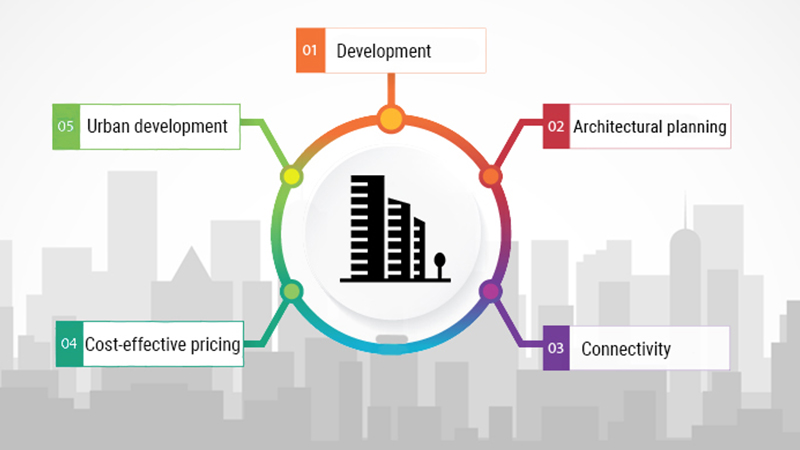

The Power of Top 5 Key Factors in Real Estate Investing
Investing in a real estate company can seem like a challenging endeavor, especially for first-time investors. However, with the right knowledge and guidance, entering the real estate market can be more accessible than you might think. Before taking the plunge into real estate investment, it's important to consider several key factors.

Explore the Factors in Detail
Conduct Thorough Market Research
Before investing in real estate, it's essential to conduct comprehensive market research. Take the time to understand the current state of the real estate landscape. Keep track of trends, property prices, interest rates, and the performance of different locations. By staying informed about the market, you can make well-informed decisions and avoid potential pitfalls.
Location
Choosing the right location for property investment is just as crucial as selecting the property itself. Consider investing in areas that are highly desirable or experiencing significant development and growth. Locations with a proven track record of property value appreciation are also worth considering. Thanks to online real estate crowdfunding platforms, you are no longer limited by geographical constraints, enabling you to invest in properties anywhere.
Type of Property
Decide whether you want to invest in commercial or residential properties. If residential properties are your focus, weigh the pros and cons of established properties versus new builds. Established properties often offer stability and require less maintenance, while new builds come with higher risks and potential returns. Additionally, determine whether you prefer rental properties for long-term gains or buy-to-sell properties for short-term profits. Each strategy carries its own set of advantages and risks.
Long-Term vs. Short-Term Investment
Clearly define your investment goals. If you are seeking immediate returns, short-term strategies like buy-to-sell or fix-and-flip opportunities may be more suitable. However, it's important to note that these strategies come with higher risks. For long-term gains and stability, rental properties can be a solid choice. Luxury rental properties in sought-after locations often provide consistent returns over time. Take into consideration your risk tolerance and investment timeline when deciding between both investments.
Diversification
Diversifying your real estate investments is key to mitigating risk. Avoid putting all your investment capital into a single property. Instead, spread your investments across multiple properties. This approach allows you to balance potential losses with gains from other properties. Online real estate crowdfunding platforms have made diversification more accessible, as you can invest smaller amounts in various properties, reducing your exposure to any single investment.
Direct vs. Non-Direct Investment
Consider whether you prefer a direct or non-direct investment approach. Direct investment involves hands-on management, dealing with paperwork, and overseeing property upkeep. If you prefer a hassle-free option, online real estate crowdfunding offers a convenient alternative. It allows you to invest remotely without the complexities associated with direct investment. Conclusion: By carefully considering these factors before diving into real estate investment, you can make well-informed decisions and increase your chances of success. Thorough market research, strategic location selection, choosing the right property type, defining your investment goals, diversifying your portfolio, and deciding on direct or non-direct investment approaches are crucial steps toward building a successful real estate investment portfolio. Remember to seek guidance from professionals, stay updated on market trends, and continuously educate yourself to make informed and strategic investment choices.
Conclusion
By carefully considering these factors before diving into real estate investment, you can make well-informed decisions and increase your chances of success. Thorough market research, strategic location selection, choosing the right property type, defining your investment goals, diversifying your portfolio, and deciding on direct or non-direct investment approaches are crucial steps toward building a successful real estate investment portfolio. Remember to seek guidance from professionals, stay updated on market trends, and continuously educate yourself to make informed and strategic investment choices.









Leave a comment
All fields marked with an asterisk (*) are required